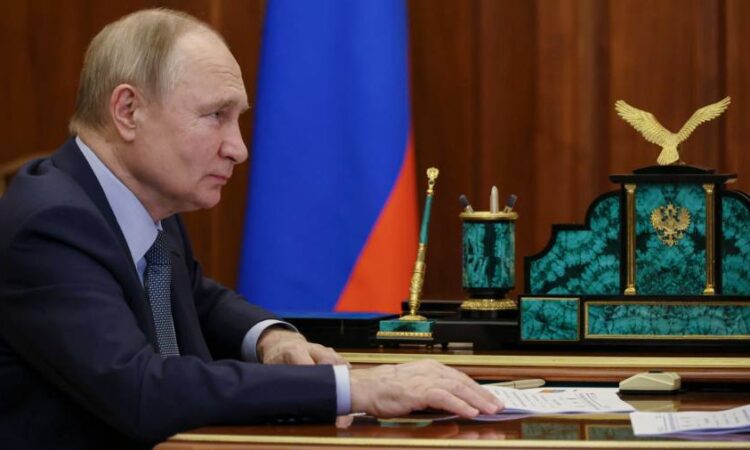
The massive sanctions imposed on Russia after Vladimir Putin’s assault on Ukraine should be assessed by three main criteria: have they dissuaded Putin; do they disable his capacity to wage war; and can they force Russia to pay for the destruction it has wrought?
On the first test, sanctions have clearly disappointed, but there may be nothing that could dissuade Putin from his obsession with recolonising Ukraine. On the second, the Russian military is weakened by its lack of precision arms and the economy’s struggles to replenish depleted weaponry. The effectiveness of sanctions on this score grows as the west overcomes its self-imposed taboos on which weapons it lets Ukraine obtain.
Effectiveness is also hampered by poor enforcement. Trade is being visibly redirected through countries not taking sides. Sanctioning countries are finally paying greater attention to enforcement. They must intensify investigations into breaches, put more diplomatic pressure on other governments, and expand extraterritorial policy tools.
In the case of financial sanctions, circumvention is also a consequence of flawed design. Some Russian banks have remained unsanctioned for fear of hurting energy supplies and legal trade. But whenever there is a route for legal money to move, sanctioned money has a way of exploiting it.
And for the third objective of making Russia pay the price, financial sanctions are the only game in town. At more than $300bn, blocked Central Bank of Russia reserves dwarf anything other types of sanctions could conceivably extract. A big question is whether to confiscate these reserves and use them to fund the reconstruction of Ukraine. The moral case is unanswerable; the legal case is untested. At one end, Canada has given itself the power in law to confiscate Russia’s state assets. At the other, qualms about international law abound in Brussels, though to its credit, the EU has set up a new working group to examine how Russian assets can be used.
There are other vital measures in this area where legal conservatism is no excuse. One is transparency. Western financial institutions know the reserves, deposits and securities they hold for the CBR. Their governments can and should require them to make all CBR holdings public.
Another is to extend the blocking measures to Russia’s “shadow reserves”. High energy prices of Putin’s own doing have given him enormous trade surpluses. Not all of this cash pile remains unspent, and not all of it is under state control. But Moscow may have added some $100bn to its unsanctioned foreign assets last year.
Since this money is a substitute for official reserves, leaving it unsanctioned undermines the original move against the CBR. To be consistent and effective, sanctioning countries must freeze the assets of Russian energy exporters, and target the banks through which their earnings are channelled. For the EU, that means finally sanctioning Gazprombank, the main conduit for European gas payments with a subsidiary in Luxembourg. The sanctioning coalition should do the same for any other western banking channels used in Russia’s energy trade.
They cannot stop there. The Moscow Exchange’s National Clearing Centre retains euro and dollar correspondent accounts in Frankfurt and New York, respectively. When Putin demanded that payments for gas be forcibly converted into roubles, his decree specified that the NCC must handle the conversion. Some of Moscow’s hard currency surplus probably remains in those accounts. In parallel, the sanctioning coalition should follow the money flows, tracking past transactions to establish where the surplus has ended up so as to freeze what is still within Putin’s reach. New payments should go into escrow accounts.
Which brings us to the third necessary action. Ukraine’s friends must complete the job of weaning themselves off Russian energy. Europe has reduced its Russian gas consumption significantly, but still imports some piped oil and gas and shipped liquefied natural gas. The US has been indecently keen to keep Russian oil flowing to emerging markets so long as it trades below a price cap. That cap should now be lowered to close to Russia’s production cost.
If this leads Putin to cut off the energy flow completely, that is no longer the threat it once was. Recent budgetary moves suggest Moscow is beginning to struggle to find all the money it needs. When financial sanctions were imposed a year ago, they did not have the devastating economic effect many expected. Today, completing them might.






